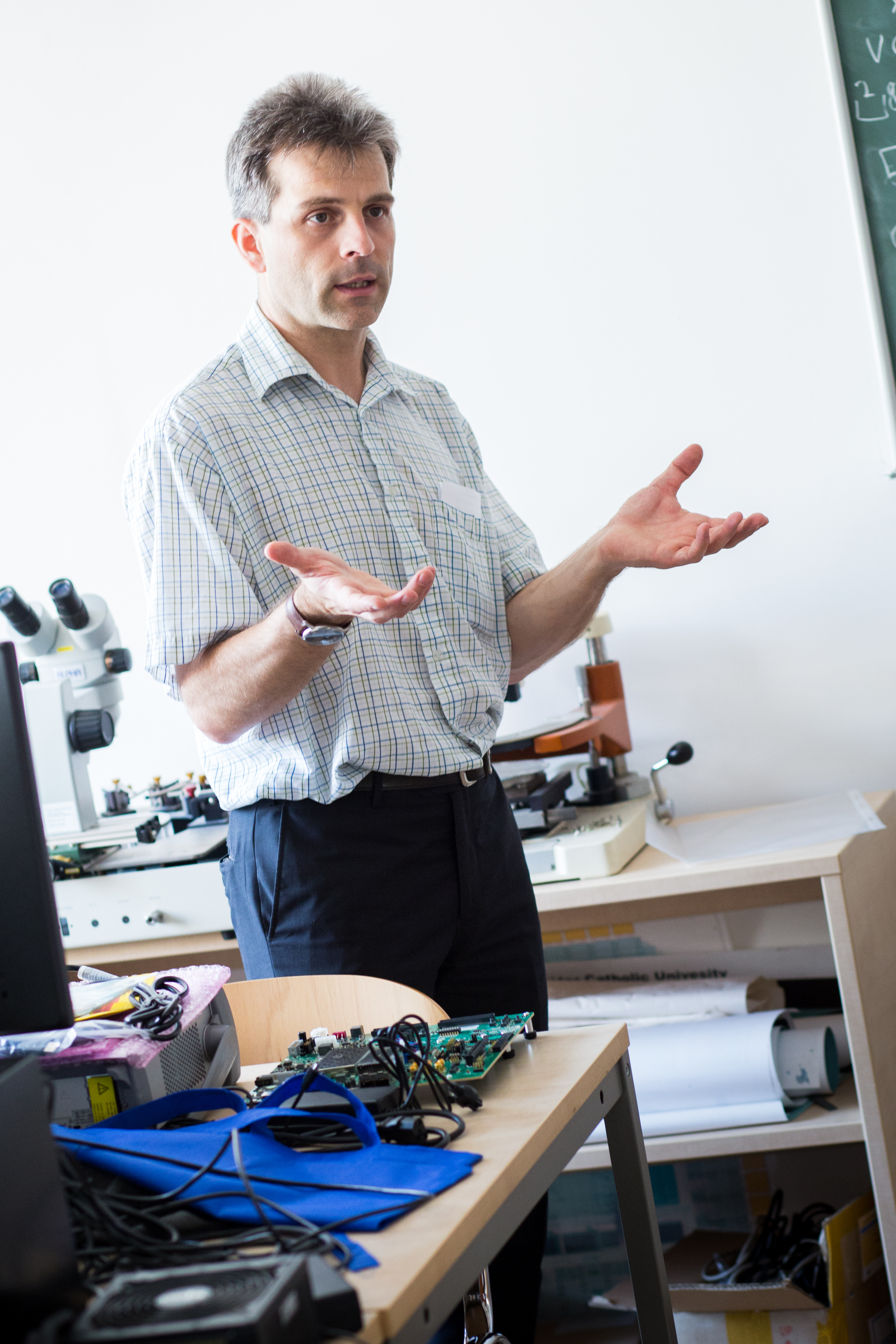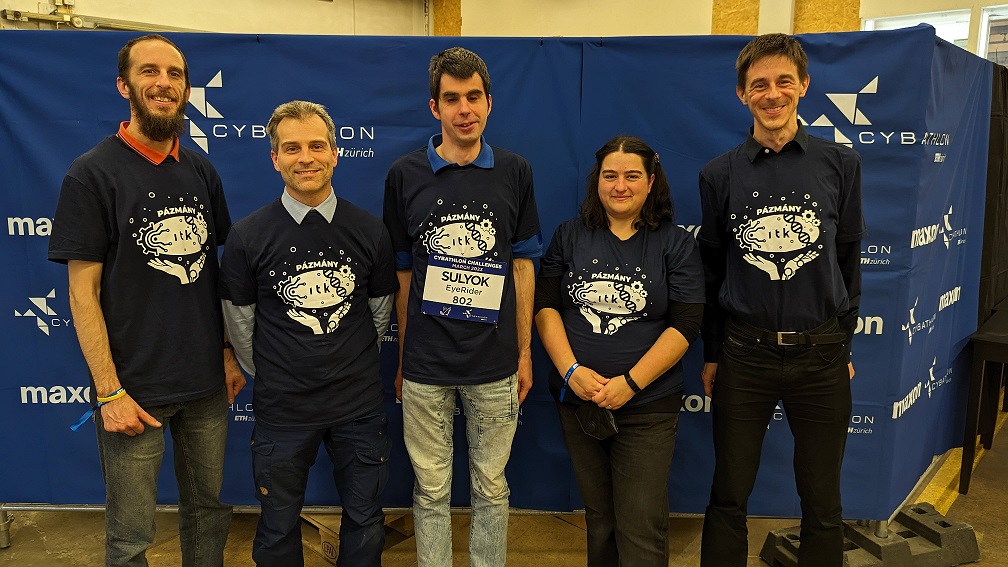Can you explain to those unfamiliar with the term bionics, what this scientific field researches? What drew you to this area?
Bionics is a research area between the fields of genetics, neurobiology, immunology, molecular biology, electrical engineering, and computer science. It is a broad field, which is key for medical technologies including bio-imaging, lab-on-a-chip, drug delivery devices, neural interfaces, prosthetics, and personal medicine – among others. I was drawn to this area because of its potential to improve lives by integrating technology with biological systems, and of its innovative solutions to medical and engineering challenges.

The Faculty of Information Technology and Bionics (ITK) at Pázmány Péter Catholic University combines IT, electronics and biology. How can we imagine this collaborative work in practice?
The curriculum includes a mix of courses from molecular biology, computer science engineering, and bioinformatics, encouraging a multidisciplinary approach to problem-solving. The integration aims to produce innovations such as wearable health devices, smart prosthetics, and bio-inspired robotic solutions. Students and researchers work for example on projects that develop neural electrodes for brain-computer interfaces, bio-nano sensors for medical diagnostics, advanced imaging techniques, or image-processing algorithms for medical diagnostics.
Last year your team from Pázmány University won a prestigious award at the Cybathlon competition, a global contest, that is meant to be the Formula 1 of assistive technologies for people with disabilities. What was the winning development of the EyeRider team?
We won the competition in 2023 and 2024 with our Vision Assistance (VIS) technology, which is designed to assist visually impaired people. The winning development involved an application that processes information from an iPhone’s camera and sensors to provide real-time navigation and assistance. The application helps users with severe visual loss to navigate obstacles, identify objects, and perform tasks independently, significantly improving their mobility and autonomy.

This October, the EyeRider team will compete at Cybathlon again. What are the expectations for your participation?
For the upcoming competition, we are preparing to further refine our mobile application Vision Assistance technology. We aim to enhance the accuracy and responsiveness, ensuring it can handle more complex tasks and environments. This time we’ll be facing ten tasks in a short time compared to the previous two or four in a single run. This includes improving obstacle detection, object recognition, shopping, and user interface to provide more reliable and efficient assistance to visually impaired people.
What is the relevance of international technological competitions, like Cybathlon? Why is it important to participate in events like this?
These competitions are crucial for many reasons. They provide a platform for innovation, encouraging teams to develop cutting-edge assistive technologies. They foster collaboration and knowledge exchange among researchers, engineers, and medical professionals from around the world. Participating in these competitions also increases awareness of the challenges faced by people with disabilities and demonstrates how technology can help to address these issues.
Moreover, it motivates teams to push the boundaries of their research and development, ultimately leading to real-world applications that can significantly improve the life quality of individuals with disabilities. These are important platforms to showcase the current state-of-the-art solutions and to increase the visibility of research groups that work on these solutions. We are proud of the Faculty of Information Technology and Bionics at PPKE that our research and development areas align with this competition.